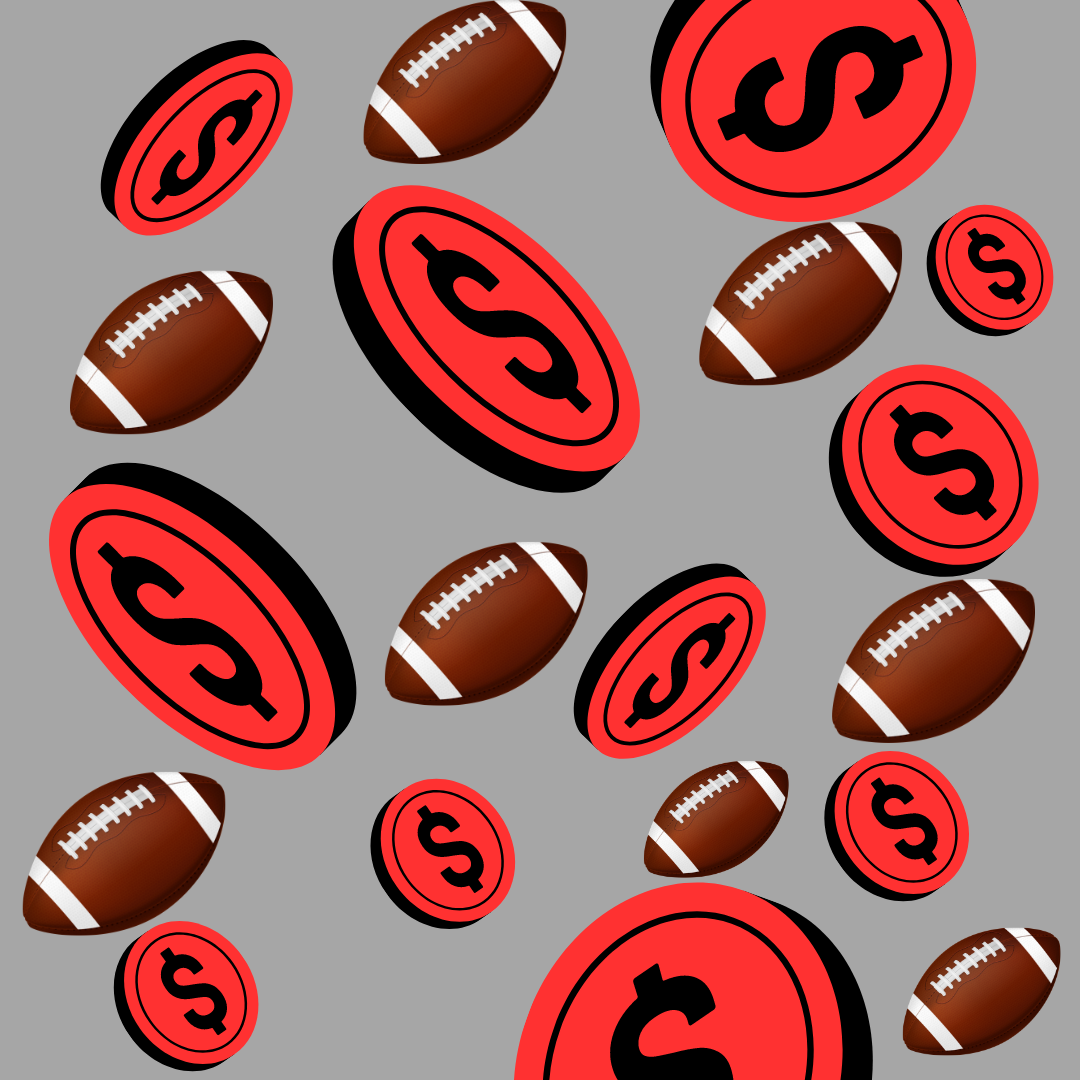Have you ever made a verbal $20 bet with a buddy on who’s going to win the upcoming football game? He picks the favorite, and it looks like easy money for him, right? Except the team you picked, the underdog, miraculously wins the game. You go to accept your winnings, but your friend drops the common line: “Man, that doesn’t count. We didn’t shake on it.”
Now imagine that feeling from your shady “friend,” but magnify it to a life-changing decision. That’s essentially what happened to former University of Nevada, Las Vegas quarterback Matthew Sluka.
He was allegedly promised a $100,000 NIL deal by an unnamed assistant coach to leave Holy Cross University to come play for UNLV, but was only given $3,000 according to Sluka’s agent and father.
So the Rebels, one of the hottest underdogs in the country, just lost their starting QB because someone couldn’t pick up the tab? In Las Vegas of all places? There has to be more to that story, right? Oh, don’t you worry, there is.
Before we get into this specific story, we need to go back and give some background on how this situation even presented itself.
I wrote an opinion piece in March 2023, at the beginning of this madness in collegiate sports, talking about the dangers of NIL.
Not to toot my own horn, but I was kind of right. However neither I, nor any expert really, could have foreseen how out of hand the transfer portal and NIL would become in just under two years.
In a numbers context, nearly 13,025 athletes have transferred from one school to another in 2023 at the Division 1 level. That is a 75% increase from how many athletes transferred in 2021.
In Division 1 football alone, there were 3,502 athletes that switched schools in 2023, including 300 scholarship players that entered the transfer portal for the second time in their careers. That means at minimum, those specific players will be attending three separate universities in their college career.
These numbers are staggering, and for the sake of the athletes, it is amazing they have this much leverage to make their own path. However, the two reasons why a majority of players are leaving is the talking point.
Instead of fighting for a position, athletes are entering the transfer portal to go somewhere else where they can play right away. Sometimes this works out, but a lot of times, players are being sold a false narrative, and now are nowhere closer to seeing the field and have wasted another season of not playing.
Then there’s chasing money. Universities with higher NIL collectives are selling higher earnings in their program to prospective transfers so they will leave their smaller school. However, when situations like Sluka’s occur and the money can’t be delivered, players are truly hung out to dry.
Football is a game of adjustments, and student-athletes have made their next move. They are saving their redshirt year, for eligibility purposes now.
Red shirt years are traditionally saved for players to gain an extra year of eligibility to mature, deal with an injury or make the adjustment from high school to college. Once they declare as a red shirt for a year, they can only participate in practices that season, not games.
With rules in place that allow players to participate in up to 4 games in a season and still be eligible to use a red shirt, they are getting to create themselves a sample period to make sure things go as planned. If the situation at their new school isn’t going well, they can use that red shirt to save a year of eligibility and re-enter the transfer portal.
This is the loophole that Sluka is exploiting. However, his situation has nothing to do with playing time or a bad fit, but with money. His UNLV Rebels were 3-0 to start the season under his play, with upset wins on the road over Houston and Kansas. Sports media talking heads were starting to look at UNLV as a sneaky pick to make the CFP Playoffs this season.
When the story first broke, the narrative spun around Sluka was that he is selfish. How could he leave his team at this time? Aren’t quarterbacks supposed to be leaders of the team? Who the hell is going to give him another chance if he acts spoiled like this?
In the data above, did any of that paint a picture of college sports being about loyalty? I don’t think so. To alumni, of course there is loyalty. To athletes, the picture painted is that this realm of the sports world is a business now, just like big brother, the NFL.
There are reports saying Sluka wanted more money than he was originally offered, but that has not been proven to be 100% true. A confirmed recent development in the story was Mike Palm, the VP of Operations for Circa Resort and Casino, told the Las Vegas Review-Journal that he offered to pick up the $100,000 tab to keep Sluka in the desert.
“Circa CEO Derek Stevens and I talked about the situation, and thought it would be worth it for $100,000 to keep the Rebels’ playoff hopes alive,” said Sluka to the newspaper.
However, the offer came 24 hours too late, as the relationship between Sluka and UNLV was already too tarnished.
The point to be made here is that this is not really just about the money. It’s about the exploitation of college athletes. The NCAA continues to be like an ostrich, burying its head in the sand as a new pandora’s box opens. The lack of guard rails for NIL and players’ contracts has literally led to this moment.
Sure, we can blame Sluka’s agent for being incompetent. How do you let your client move from Massachusetts to Nevada without a signed contract? Or we can clearly blame the assistant coach, who either straight lied to Sluka or didn’t have as much money lined up as he expected from UNLV’s NIL collective.
But again, I shift the attention to the NCAA. An entity that has lost nearly all its power in college sports, had the chance to do the right thing years ago. They could’ve made NIL above board, by not relying on NIL and paying student-athletes themselves, as well as allow athletes to create a union and collectively bargain.
Their decision you ask? Let the colleges handle it with zero rules in place. Whatever happens, happens. They were too cheap (in an industry where they generated $1.3 billion dollars in revenue in 2023) or incompetent to set up a pay scale for collegiate sports.
Sure, the dollar figure would probably have come out to less than what the top athletes are making now. But, at least you’d have all student-athletes securing the money they are worth in terms of how much the NCAA makes each year.
I feel bad for Matthew Sluka’s teammates and I feel for bad fans of UNLV. They are the ones who were screwed in this situation. Sluka I feel for a little, but as a sports fan, it still rubs me the wrong way to abandon your team.
The NCAA is who needs to be held accountable in this situation. This stems back to their lack of ability to create a policy ahead of time that is in place to protect universities and student-athletes from being in a situation like this. This may be the first time a player is transferring for this reason. But I assure you, this won’t be the last.


